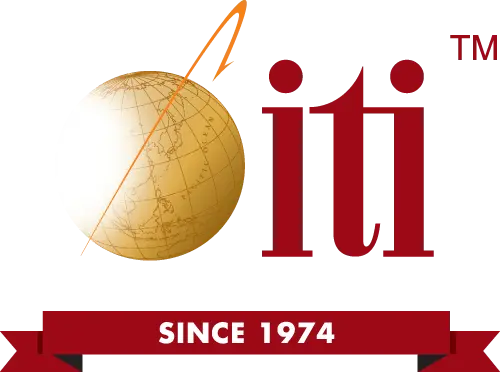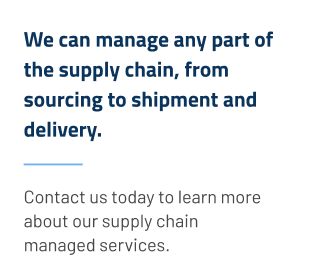At the time of this writing, the US’s tariffs on Chinese-made goods are poised to be expanded to the 4th tranche of products. This will essentially cover all product categories imported from China, minus those that authorities have granted as special exemptions. The concerns for companies using China as an offshore supplier remain evident. Some companies say they can “handle the China tariffs”, while others are not so sure.
What is certain is that the tariffs do not impact only certain companies or industries. All companies and all products will be, sooner rather than later, impacted by the higher tariff percentages. Even though the official documents have not yet been published what has been formally announced is that on September 1, 2019, all products imported from China will be subject to the tariffs.
Companies Opting to Move out of China?
No one likes situations outside their control that have an impact on them and their business and the uncertainty that comes with those situations. Many companies believe if they keep their manufacturing in China the tariffs imposed on their imported Chinese goods will tip the scales into the unacceptable category. They worry their products will become too expensive and consumers will no longer buy them. One thing to remember though is the tariffs impact ALL BUSINESSES and ALL PRODUCTS. If consumers stop buying a certain product from a particular company they may be switching to another company’s product because they view that product to be manufactured and sold as a “better bargain”.
That all being said, if the USA tariffs were suddenly lifted, reasons remain why companies could be looking to other countries for their offshore manufacturing:
Three reasons are:
1. China as Not the Bargain it Was Years Ago
That’s true, but what is? The Chinese economy has enjoyed tremendous growth and with that growth came prosperity, and with that prosperity came inflation. However, with the recent devaluation of China’s offshore Yuan, China is making moves to help ease the US tariffs’ impact. Also, despite the China tariffs, the country remains one of the best bargains for offshore manufacturing. China’s costs remain competitive across the globe. Some forecasts predict that this advantage will diminish over the next five years. Furthermore, they deem that Mexico, Taiwan, and Vietnam have emerged as less expensive options for future manufacturing operations. A few years ago labor cost was the major – only? – factor in deciding to move manufacturing offshore. Now, labor costs, while a significant factor is not the only consideration. There are more components to consider in offshore manufacturing than labor costs alone.

2. Concerns about IP and Copyrights
China has improved its Intellectual Property and Copyright laws but many businesses feel they haven’t done enough. Countries with better laws and equal production capabilities have therefore become a valid option for companies feeling the added tariff burden. China opened its first IP Court in December last year but has a long way to go before major US companies trust them to protect their inventions properly. The Chinese laws requiring foreign companies that want to establish manufacturing in China and sell directly to the Chinese population are the companies impacted most.
3. Current Trade Agreement Benefits
Near-sourcing from countries like Mexico is an attractive option due to the current trade agreements. Similarly, countries like Vietnam benefit the most from China tariffs. Since 2017, foreign direct investments rose by just over 9%. This is a result of policy adjustments implemented in recent years lowering tariff rates and duties. However, Vietnam is very small when compared to China. Currently, Vietnamese infrastructure and raw material availability are nowhere near that of China.
Manufacturing closer to home is becoming “in vogue” again for some companies. Mexico’s ability to produce textiles, electronics, and other goods has steadily increased over the years. While labor costs are higher than China, the close proximity to the intended market keeps them competitive. However, manufacturing in Mexico has, just like any country, its own unique challenges.
Moving Production Operations with ITI Manufacturing
For companies feeling the urge to move out of China, moving to Vietnam for future manufacturing needs may be the best option. For many product categories, Vietnam’s labor costs and attractive export policies seemingly make them the de facto winner in the current US-China trade war. However, this does not hold true for all product categories and all products.
Blindly moving manufacturing out of China to Vietnam (or any country) to eliminate future uncertainty, is not a good strategy. While Vietnam has received major increases in both US-bound export orders as well as new capital investments that are funding new factories the fact remains Vietnam is small and the overall throughput of the country’s manufacturing facilities has not caught up with the new demand resulting from the US tariffs on China-made goods.
ITI Manufacturing can provide the detail you need to make a smart decision regarding moving your China manufacturing requirements to Vietnam. Since 1974 ITI has worked to help US companies make the right decision as to where to source their offshore manufacturing.
Your Experienced Manufacturing Liaison
Do not make a move without us! It is to your advantage to know what your landed costs are from reputable Vietnamese factories. You will also want to know this before seriously considering moving your manufacturing out of China. It could be that the best move is to source an alternate factory in China. For expert advice on how to adjust your sourcing strategy, contact ITI Manufacturing online today. Or, for immediate assistance, you can speak directly with one of our offshore manufacturing experts by calling 281-242-7030.






